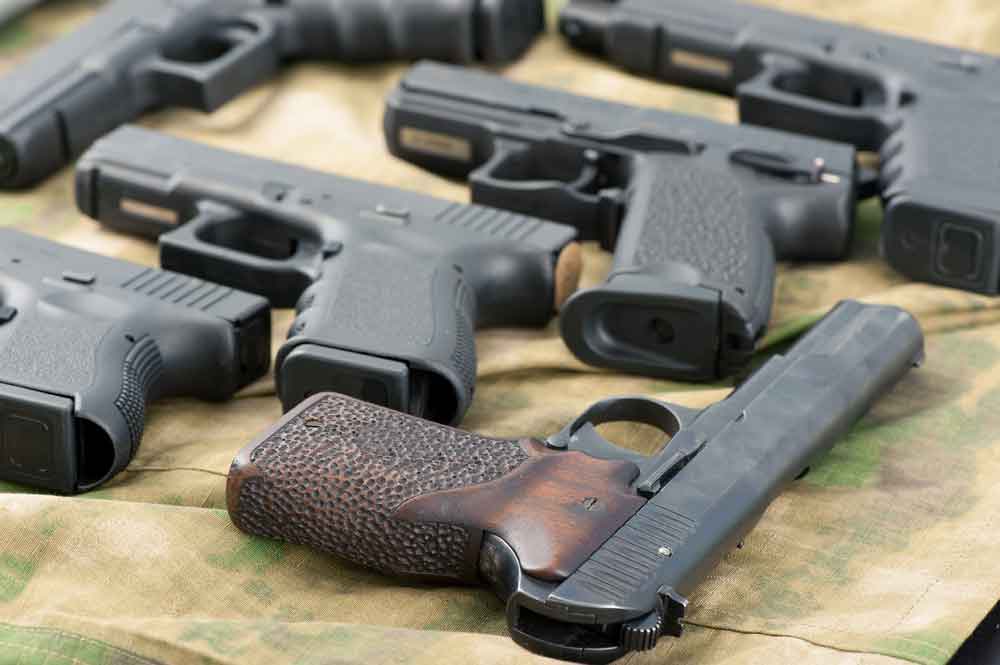Selecting And Buying Guns At Auction
Whether you are a serious collector or just someone interested in getting a good deal on firearms, there are some rules you need to follow when buying a gun at an auction.
Rule 1: Determining Condition
Find a gun you want and get as much information as you can. You need to know the overall condition of the firearm. This applies whether you are buying online or buying in person. If you can put your hands on the gun, then do so. Check it thoroughly. Is the rifling strong? Is the barrel pitted? Make sure the barrel, or barrels, are straight. Is the crown in good shape? Work the action several times. Does everything lock up tight? Is the bluing good?
Look carefully where the metal meets the wood. Excessive oiling will stain the wood. The oil will soften the wood, which is never a good idea in a firearm.
Rule 2: Determining Value
After you’ve done your homework, decide what the gun is worth. Compare the opening bid to other auctions for the same gun. Unless the firearm is historically significant, you should be able to find another auction with the same make and model gun.

Rule 3: Be Prepared To Bid And Win
Be prepared to buy the gun. Before you bid, know how to pay for your winning bid. Some places require cash, certified check or money order. Some allow credit and debit cards.
Rule 4: Know The Rules
Understand how the Auction process works. Know how to pay and how much time you have to pay. Some auctions want you to pay when the individual sale closes. At Sohn and Associates, you may wait until the end of the auction. If you are bidding online, follow the rules regarding payment posted at the auction site.
- Check the fees. A buyer’s premium is a fee charged to the person buying the gun. The percentage varies from zero to as much as 20 percent at some auction houses. The auction may also have a registration fee. At Sohn and Associates, we typically charge a 3% buyer’s premium, and offer a 3% discount for cash or check.
- Know how to get the gun. Before you ever bid in an online auction make sure you have an FFL holder lined up to receive the firearm. If you have an FFL, send a copy to auction house ahead of the auction. When buying online, wait until you win the auction to send in your FFL information. If it is an in-person auction, be prepared to go through a background check before you get the gun. The FBI conducts background checks and sometimes delays the sale without giving a reason. Make sure the seller or auction house does not have a problem with a delayed sale..
- Make sure you know how the seller defines the gun condition. Saying a gun is in “good” shape means different things to different people. Ask for clear and detailed information on condition guides.
Here are two suggestions that don’t quite make it to the rule stage:
1) Get there early and stay late. The opening guns will not be the high dollar items. You can pick up some real bargains if you pay attention.
2) If you attend an in-person auction, take some extra cash. Someone may add a gun to the sale at the last minute. You could walk out with a bargain. The same rules about checking the gun out still apply.
Buying Collector Quality Firearms
Buying a collector firearm at auction is just a bit different than buying non-collectible guns. For one thing, the cost is going to be higher. You can still check the value through other auctions and the Blue Book for production firearms.
A prototype Colt revolver is going to command a premium price. Judging the value of unique firearms is educated guesswork. The bidders will determine the price.
You’re also likely to be up against some other serious collectors. A casual buyer might let a gun go if you bid up another $10. A serious collector won’t let $10 get in the way.
If the gun is historically significant, ask for paperwork authenticating the firearm. If it is a military firearm, the papers should trace the serial number. Writing for the NRA Museums website, Jim Supica has a piece on how and why records are often forged or are outright lies. “FAKE!” has information on how to spot dubious claims on a firearm and how genuine history affects the value.
Very old firearms may not be in good shape. They may not be shootable. Maybe the gun cannot be fired safely or shooting it would lower the value. The original Liberator falls into the category of a highly desired collectible handgun that probably shouldn’t be fired much, if at all. Limited edition guns fall into the latter category. Certainly antique black powder firearms like the Trapdoor Springfield should not be fired regularly with modern ammunition.
Sohn and Associates offers firearms at auction throughout the year. Check our upcoming auctions for listings, or contact us if you have a firearms collection that you would like to sell at auction.
Get Auction Updates
Choose the auctions that you want to be informed about by subscribing to one or more of our email lists. You can change, cancel, or update your subscription at any time.
Contact Us
By submitting this form, you are granting: Sohn & Associates LTD., 4600 O'Hara Drive, Evansville, Indiana, 47711, United States, http://www.sohnandassociates.com permission to email you. You may unsubscribe via the link found at the bottom of every email. (See our Email Privacy Policy for details.) Emails are serviced by Constant Contact.





